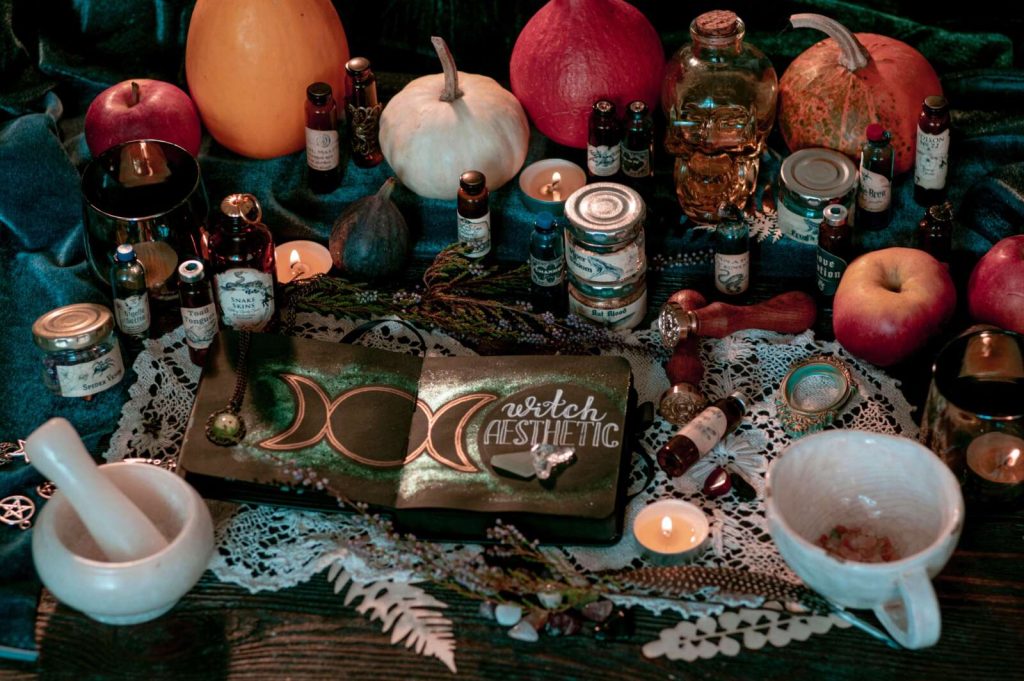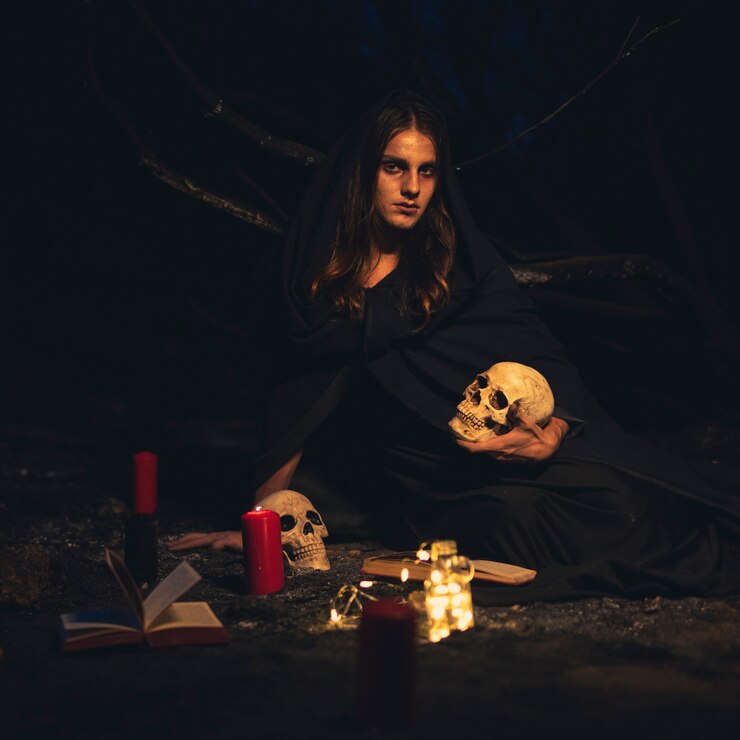So what do Christians think about witches and witchcraft? First, many Christians are as confused as non-Christians about the different kinds of ‘witches’ that exist in our society, whether in literature or among our neighbours. In the Old Testament, ‘sorcerers’ (which often means people who try to find things out through divination) are condemned, because they distract people away from the good providence and care of God. In the King James Bible, Exodus 22.28 is translated, ‘Thou shalt not suffer a witch to live’, and this, together with the historical tendency to couple together witchcraft and evil provoked by the Devil, meant that the word ‘witch’ was often understood by Christians to be by definition ‘anti-Christian’. In more modern translations, this Bible verse is understood to refer to a (female) sorcerer. Witchcraft, in the way we think about it today, is unknown in the Bible. ‘Sorcerers’ were understood however, and in the New Testament Book of Acts there is a brief account of a sorcerer, Simon Magus, who is converted to Christianity (Acts 8.9-13). Even Jesus was accused of sorcery by getting demons to do his work (see, eg Matthew 12.24). Today, however, some Christians are still suspicious and fearful of Pagans and concerned about anything which refers to witches, wizards or magic, including in children’s literature. Some Pagans therefore, are also very suspicious and afraid of Christians and others who automatically couple ‘witchcraft’ with ‘evil’.
Continued below…

Are these fears justified? Perhaps the most straightforward question to ask is this: are there spiritual dangers involved in all these kinds of witchcraft, or is it all just harmless fun or alternative religious practice? The answer is that there are certainly spiritual dangers, but not just relating to witchcraft, but to any practice that starts as a bit of fun but can escalate into experiments and investigations which can get out of hand and cause anxiety and fear. For example, every year at Hallowe’en, some people contact churches to say that they have been scared or continue to be troubled by some game or dare they engaged in which was supposed to involve ‘witchcraft’ or which suggested they contact spirits or ‘dark powers’. Pagans also say that people who treat their traditions and practices as a bit of fun without proper preparation, protection and support, risk damaging their spiritual health.
Further, there are people practising what they call witchcraft who do engage in more occult practices and admit that their spiritual explorations are darker and riskier than those of others. Some people calling themselves witches do express open hostility towards the Christian faith; others are sympathetic and may seek help and understanding from their Christian friends and from the Church. The Rev’d Paul Cudby, a Church of England priest, has spent a great deal of time talking about Christian faith with many different Pagans and written about his experiences in his book, The Shaken Path (2). You may find this book helpful in understanding why some people want to follow witch traditions or Pagan pathways and often, why they have rejected the Christian faith.
Witchcraft and Evil
In baptism, Christians renounce everything that is evil and turn to Christ, so it is important for growth in the Christian journey to be clear about what could hinder that growth, and, as in the Bible, what could distract from finding out what the God of love desires for human beings. So, should Christians read children’s books which reference witches or witchcraft? Some Christians are clear that their commitment to following Jesus Christ means the answer has to be no, but agree this can be very difficult to maintain in a world where all sorts of information and stories are exchanged on a regular basis. Other Christians make a distinction between stories, plays and other fictions, and actively dabbling in rituals and spells suggested by spell books for children and rituals found on the internet. Some young people think of witchcraft as ‘fashionable’ or a good way to be popular, and have looked for ways to do spells and magic indiscriminately to impress their friends. Some of those experiments have put them in contact with people who really do wish evil on others, and have ended up in need of help.
However, it is also important to recognise that Christian decisions about what promotes greater faith should not also build up prejudice and fear about others. Christians are called to love our neighbours and that includes all those who practise Pagan traditions or whose cultural traditions see evil powers as witchcraft. That does not mean accepting Pagan practice or witchcraft beliefs, but it does mean respecting the sincerely held beliefs of others. Blaming Pagans or people of differing cultural backgrounds or expressing hostility is not what Christianity is about, indeed many people adopting these beliefs have residual Christian beliefs or have been hurt by Christian believers in the past. Principles for Christians engaging with people from minority religions can be found here.
Witchcraft and Christian reassurance
In the New Testament, as people turned from other beliefs and practices to become Christians, and risked being persecuted, St Paul wrote to them to reassure them:
‘For I am convinced that neither death, nor life, nor angels, nor rulers, nor things present, nor things to come, nor powers, nor height, nor depth, nor anything else in all creation, will be able to separate us from the love of God in Christ Jesus our Lord.’ (Romans 8.38-39)
These words can also reassure those people who have dabbled in witchcraft rituals or spells or have tried to contact spirits. When they ask whether they have done themselves lasting spiritual damage or have offended or upset God in some way by becoming associated with evil, we can be sure that God does not condemn anyone who has done things they regret.

